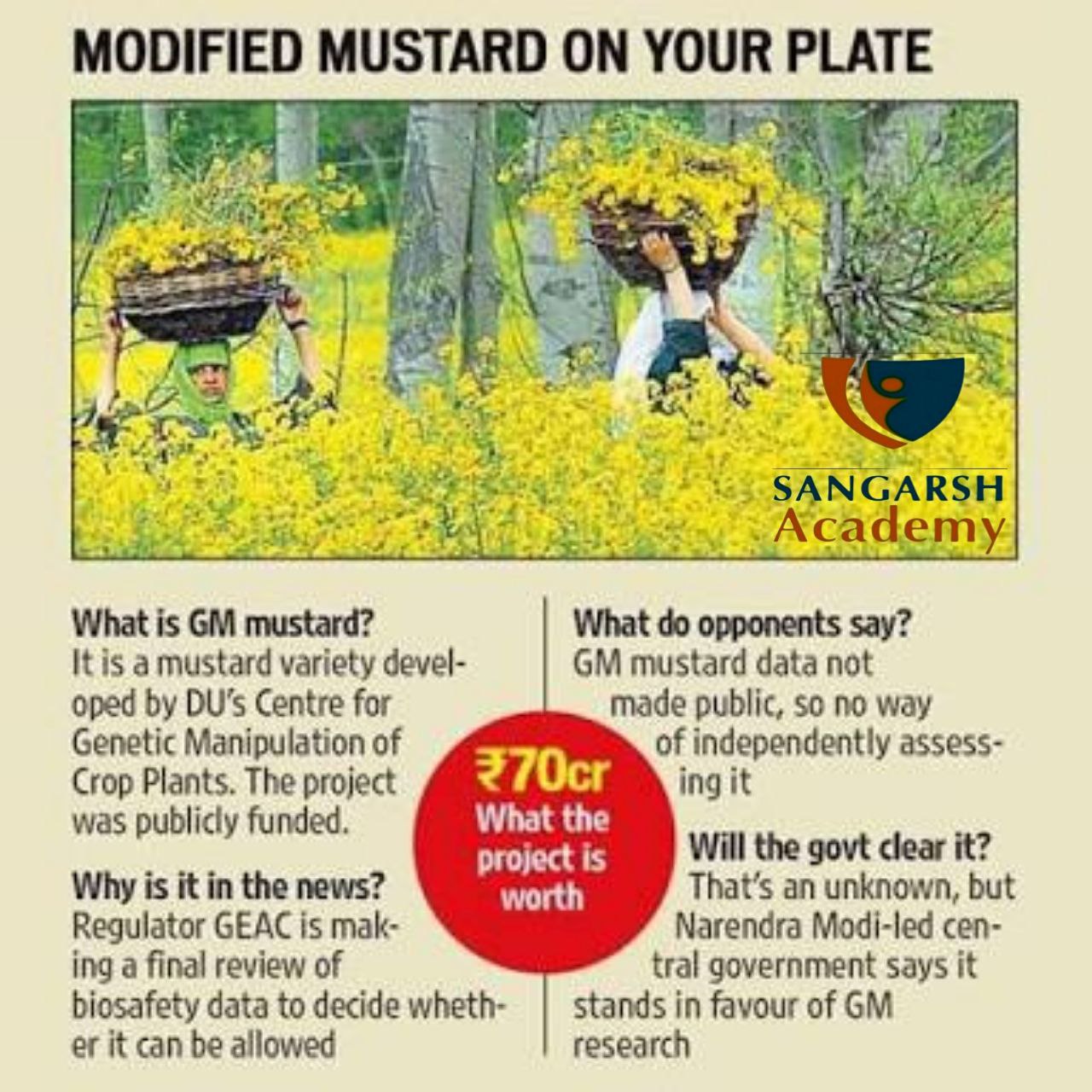Read : New variant of Mustard DMH-11 and its significance
Categories
 Posted on :- 2022-11-03 22:15:10
Posted on :- 2022-11-03 22:15:10
Why in news?
Recently, the Genetic Engineering Appraisal Committee (GEAC) has approved the environmental release of Dhara mustard hybrid-11 (DMH-11), a genetically engineered variant of mustard.
-
About DMH-11
DMH-11 is a hybrid variant of mustard developed by researchers at The Centre for Genetic Manipulation of Crop Plants at University of Delhi.
- DMH-11 is a result of a cross between two varieties: Varuna and early Heera-2.
-
DMH-11 is a transgenic crop because it uses foreign genes from a different species.
What is Barnase and Barstar system?
- This system is used to get new variant of mustard i.e DMH-11.
- DMH-11 is a result of cross between two varieties that is Varuna and early Heera but such a cross would not have happened naturally and was done after introducing genes from two soil bacterium called Barnase and Barstar.
- Barnase in Varuna induces a temporary sterlity because of which it can't naturally self pollinate.
- Barstar in Heera blocks the affect of Barnase allowing seeds to be produced.
Significance of DMH-11
- Indian Council of Agriculture Research (ICAR) suggest that DMH-11 has 28% higher yields than its parent Varuna and was 37% better than zonal checks or local varieties that are considered the best in different Agro-climatic Zones.
- Scientists say that having better hybrids is necessary to meet India's rising edible oil import bill.
- Currently, India imports anywhere from 55–60% of its domestic edible oil requirement. In 2020-21, around 13.3 million tonnes of edible oil were imported at a cost of Rs.1,17,000 crore according to the National Academy of Agricultural Sciences. This is primarily due to low productivity of about 1-1.3 tonnes per hectare that has been stagnant for over two decades.
What is controversy around DMH-11?
There are two main reasons why transgenic mustard is a topic of debate-
- The use of genes that are foreign to the species is one main reason as it may dissuade bees from pollinating the plant which could have knock off environmental catastrophes.
- The preparation of mustard hybrids require the use of another gene, called the bar gene, that makes it tolerant to a herbicide called glufosinate ammonium.
Conclusion
The Barnase-barstar system, used in DMH-11 is promising but already outdated given that cutting-edge technology such as CRISPR is in vogue. DMH-11 alone may not be the panacea for India's edible oil crisis and rather represents a platform technology that requires seed companies to invest and develop their own hybrids.India need to develop more varieties to overcome the edible oil crisis.
